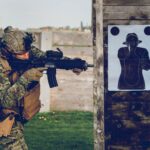Krav Maga Worldwide’s proclamation, “Pedigree Matters. Most.”, resonates profoundly within the martial sciences community.
To those well-versed in the intrinsic value of lineage, this statement reaffirms a long-held belief. Yet, for others distanced from their martial roots, it stirs discomfort, even contention, highlighting the deep divide in understanding the essence and necessity of powerfully connecting to pedigree.
Krav Maga stands out in the martial sciences realm not merely as a self-defense system but as a legacy of survival and adaptability, deeply rooted in the lineage from Imi Lichtenfeld to Darren Levine. This lineage is more than a timeline; it’s the core around which the entire Krav Maga ecosystem—encompassing training, curriculum, and culture—is built. It fosters a mindset transformation, guiding practitioners to think like true Kravists, a change cultivated through the rich thought leadership of our predecessors.
The essence of pedigree in Krav Maga transcends the superficiality of ranks, symbolizing a profound connection to the source of the system’s knowledge. This link ensures the transmission of experiential wisdom, shaped in the fires of conflict, preserving and adapting the principles and techniques that have proven effective in real-world confrontations. The Master/Apprentice model epitomizes this transmission, blending physical techniques with a philosophical depth that prepares practitioners for real-life challenges.
Informed by this rich heritage, Krav Maga’s curriculum is not a mere collection of movements but a comprehensive survival blueprint. This lineage ensures techniques are not only replicated but imbued with the strategic depth essential for practical application. Krav Maga’s adaptability and immediacy, rooted in an understanding of human physiological and psychological responses, underscore the significance of this deep-rooted connection.
The culture within Krav Maga, reverent of its lineage, cultivates a community that values knowledge depth and transmission integrity. This respect for pedigree underscores the system’s effectiveness and its ability to evolve without straying from its foundational principles. This lineage, directly linking practitioners to the source of their knowledge, establishes pedigree as the cornerstone of effective self-defense, making an irrefutable case for its paramount importance.
Pedigree in Krav Maga is a compelling narrative, emphasizing the integration of knowledge within the system’s historical and practical framework. It’s about maintaining a living tradition that enriches Krav Maga at every level, ensuring the art remains a potent, relevant, and comprehensive survival system.
More than anything, personal growth in Krav Maga is tethered to access to authentic thought leadership—lineage or pedigree. It’s about confirming that your practice is powered by a profound knowledge source, crucial for facing violence effectively. The historical dilution of martial sciences without their “source code” serves as a cautionary tale, emphasizing the invaluable nature of direct access to powerful experiential wisdom.
As a long-standing student of Darren Levine, I’ve witnessed attempts to lure practitioners away from this lineage. However, the thought of abandoning the source for personal gain not only speaks of disloyalty but also blatantly overlooks the necessity of continued access to this rich wellspring of knowledge.
For newcomers to self-defense, “caveat emptor” (buyer beware) serves as a crucial guide. In seeking self-defense training, the importance of pedigree cannot be overstated. It ensures your training is rooted in a lineage of tested, effective wisdom, paramount for your safety and growth in self defense. Pedigree isn’t merely a lineage on paper; it’s the assurance that your practice is informed by the deep, powerful source of knowledge that has discovered something vital about facing violence effectively.




